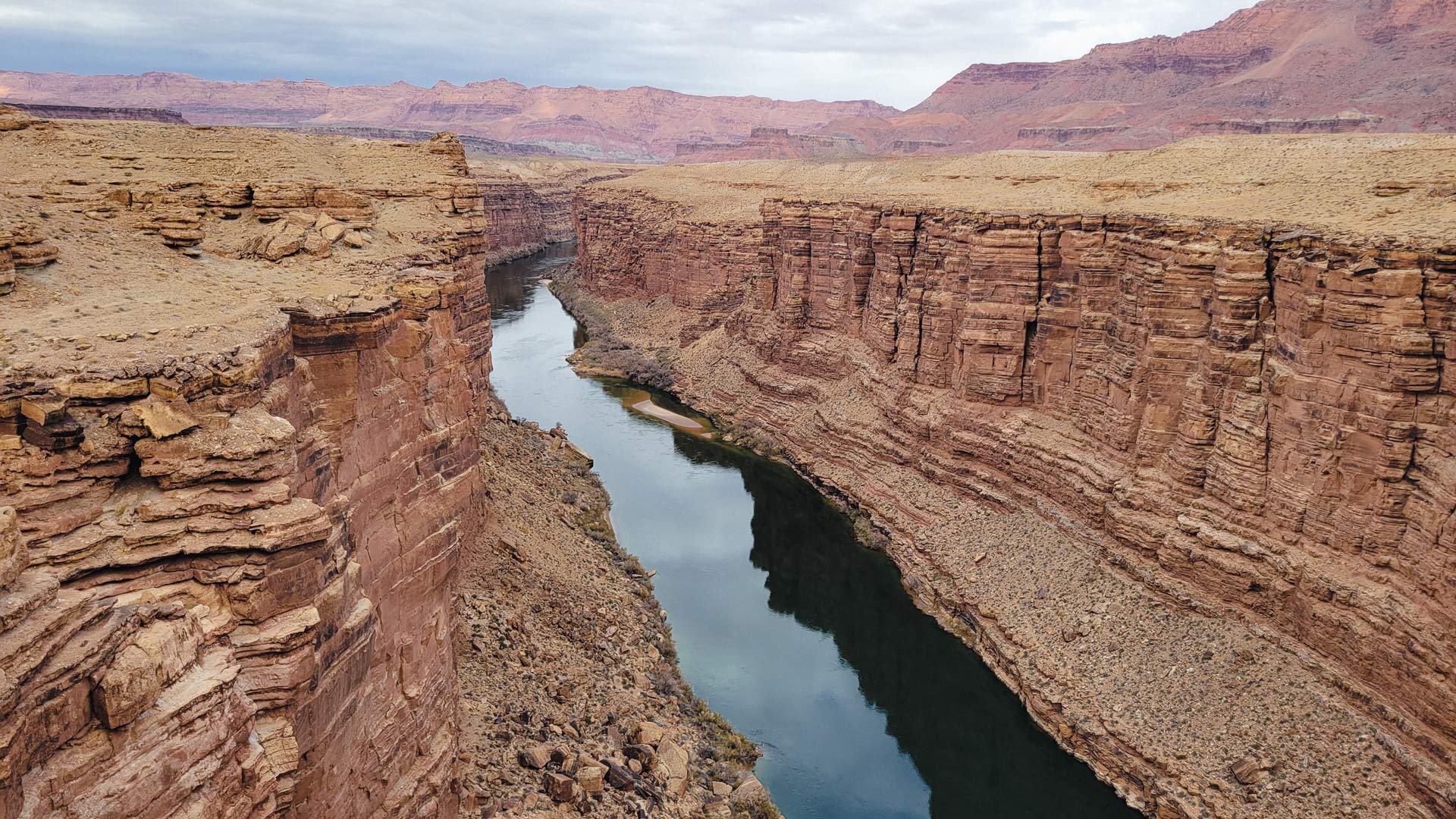 The Colorado River, just north of the Navajo Bridge in Northern Arizona.
The Colorado River, just north of the Navajo Bridge in Northern Arizona.
Leaders of the Navajo Nation and Hopi Tribe traveled up to Washington, D.C. to testify before the U.S. House Natural Resources Committee to urge the passing of bills that would bring water to their communities.
Navajo Nation President Buu Nygren testified that right now, about a third of Navajo households lack running water.
“Thousands of our people continue to haul water over 30 miles roundtrip to meet daily water demands,” Nygren said. “Congress must act to end the water crisis on the Navajo Nation. This made the pandemic devastating to my people and holds us back from the that other Americans take for granted.”
Hopi Tribe Vice Chairman Craig Andrews also testified. He told committee members how the federal government landlocked the Hopi, surrounding them with the Navajo reservation and separating them from their traditional water sources.
“The current water supplies on the reservation cannot sustain our population or growth into the future,” Andrews said. “Unlike others, Hopi cannot simply move away to where there is more water. We have a sacred covenant with the original caretaker to be the stewards of this land.”
The Northeastern Arizona Indian Water Rights Settlement Act of 2024, introduced by Republican Congressman Juan Ciscomani, so far has gained bipartisan support from lawmakers like Democratic Congressman Raul Grijalva and Republican Congressman David Schweikert. The bill would fund the construction of a $1.75 billion pipeline to divert Colorado River water to communities in need.
“For far too long, many tribal communities in northern Arizona have had a lack of access, or no access at all to clean drinking water,” Ciscomani said. “It is high time we right this wrong and ensure these families and communities have reliable water resources, which is the foundation of a thriving community.”
The pact would also allow the Hopi Tribe and Navajo Nation to lease, exchange, and accrue long-term storage credits for its water.
The settlement marks a historic time for Arizona’s northern tribes after being left out of the Colorado River Compact more than a century ago. That agreement divided Colorado River basin water among seven states in the West but left tribal nations out. The proposed $5 billion bill is a culmination of decades worth of government-to-government negotiation and collaboration. All three tribes and surrounding communities approved the settlement. Now the federal government is left to ratify and fund the settlement.
“When this water settlement does get passed by Congress, that not only is Navajo Nation going to benefit economically, but the state of Arizona will continue to push some of those things forward so that we can uplift ourselves as a nation,” Nygren said.
The bill would also ratify a treaty between the Navajo Nation and the San Juan Southern Paiute Tribe, creating a reservation for them. Right now, the San Juan Southern Paiute Tribe is the only federally recognized tribe in Arizona without a designated reservation.
Earlier this month, Democratic Senator Mark Kelly and Independent Senator Kyrsten Sinema introduced the Senate version of the bill.

By submitting your comments, you hereby give AZPM the right to post your comments and potentially use them in any other form of media operated by this institution.